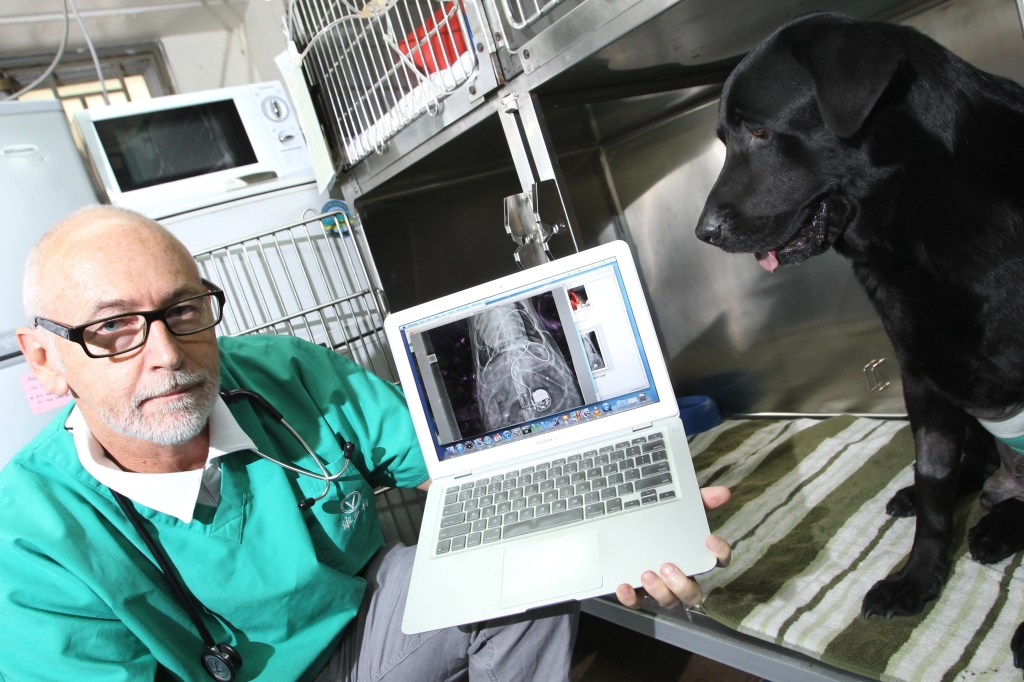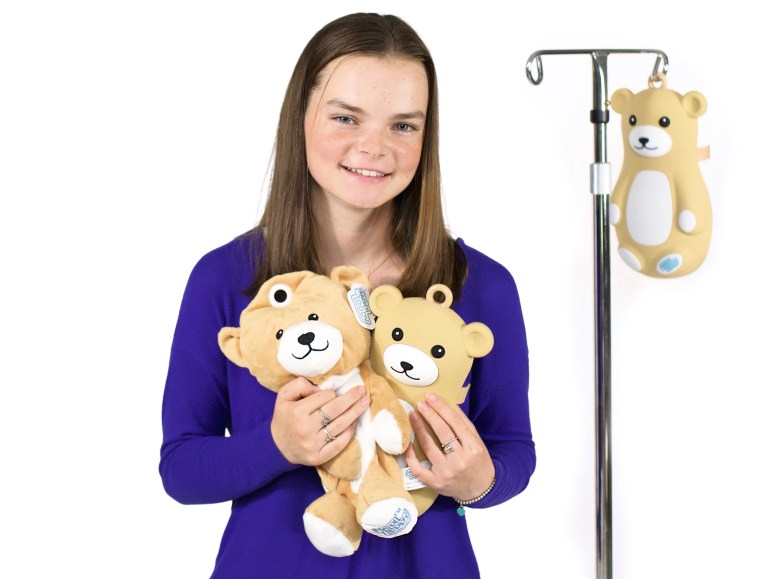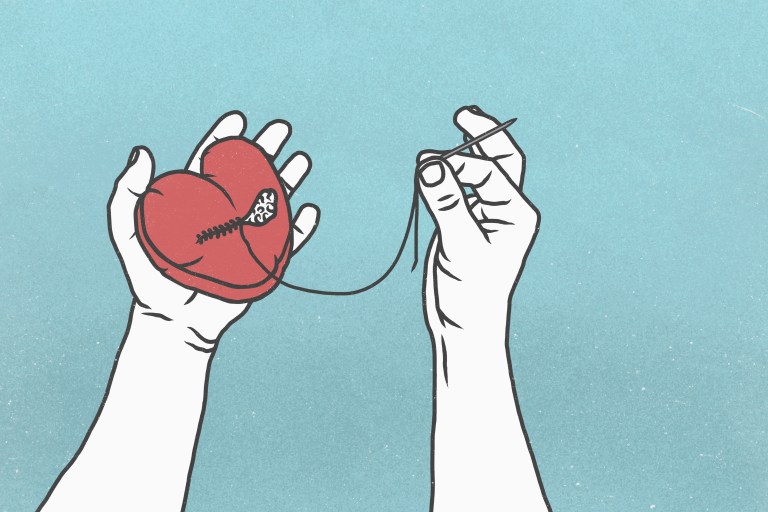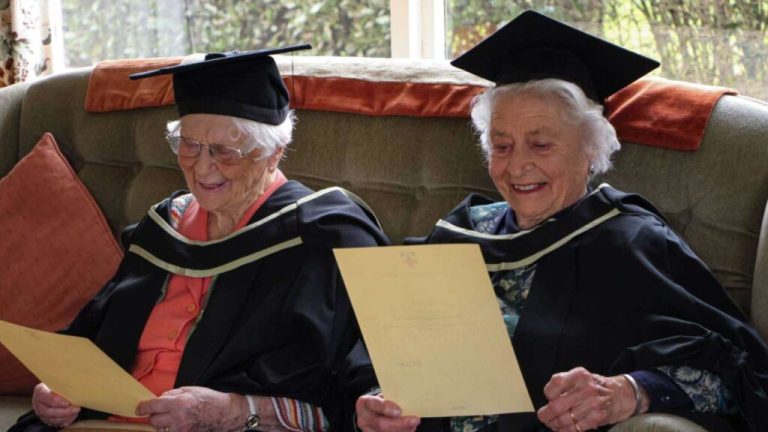Around 3 million Americans live with cardiac pacemakers: small, implanted devices that regulate slow heart rates by delivering electrical pulses to the organ. In use since the late 1950s, they can significantly improve quality of life — not just for humans, but for canines, too.
Like us, dogs can experience slower-than-normal heart rates, or bradycardia, as well as the debilitating symptoms that the condition can cause, like lethargy, weakness, and fainting. Such was the case for Christine Bachman’s 17-pound terrier mix, Blanche. The pup had a hard time keeping up on hikes, and needed to be carried after only a couple minutes. After Blanche received a pacemaker in 2022, she became a “little monster,” Bachman told Reader’s Digest earlier this year.
“It’s amazing. She can walk and doesn’t get out of breath. Without it, I’m sure my little baby would be gone by now,” the Colorado resident said.
Veterinary cardiologist Stacey Leach, a former professor at the University of Missouri’s College of Veterinary Medicine, shared that situations like these are almost as meaningful for him as they are for his patients. “The pacemaker cases in particular are pretty rewarding because they start with an animal that just feels really bad, or is very symptomatic, even collapsing,” he shared in a news release from the institution, which accepts pacemaker donations.
“We had one patient that was collapsing every five minutes, and we were able to offer a quick fix: Put a pacemaker in there, turn it on, and within seconds you know whether it’s working or it’s not,” he said. “Then, it’s not long before these guys can feel really good and go on to live a normal life.”
But as anyone with a pup knows, veterinary care can be expensive, and because implanting pacemakers often requires echocardiograms, bloodwork, anesthesia, and hospitalization, not to mention the price of a brand-new device itself, they’re cost prohibitive for some pet parents.

While the FDA classes pacemakers as single-use devices, meaning they can’t be donated secondhand to other humans (though there are programs that facilitate donations to lower-income countries), dogs are exempt from that restriction.
Per Reader’s Digest, pacemakers have a use-by date that’s typically 10 years or less, and if they aren’t implanted in a human in that time, they can no longer be sold for use.
“For a human, that would be unacceptable because we expect them to live decades longer,” veterinary cardiologist Anna McManamey explained to the outlet, adding that for animals, “a decade of life is expected, and that’s great. So we’re able to use those pacemakers that have an unacceptable shelf life for a human but very acceptable for our patients.”
The biomedical device company Medtronic donates expired, unused pacemakers to an organization called CanPacers, which then sells them at a reduced cost to veterinary hospitals. But there’s currently a waitlist for generators — the part of the device that houses the battery and controls the electric signals sent to the heart.
That’s where direct donations of used pacemakers to veterinary hospitals come in, which is what a South Florida woman named Susan Kreitner did. Kreitner’s sister, Kathy, who battled terminal cancer, wanted to ensure her pacemaker went to a pup in need, so before she died, she made the decision to donate it to the Veterinary Cardiopulmonary Center in Pompano Beach.
“She loved dogs in general,” Kreitner told Local10News in December. “Knowing it could save a dog’s life and bring happiness to a family would have made her ecstatic.”
Practice Manager Ricardo Sanchez said the directly donated devices have proved essential. “I get calls every week,” he shared. “I chase the details — make, model, and when it was implanted — to ensure we can use it.”
How to Donate a Pacemaker
It may take a little bit of effort to make a donation, as a national database for institutions that accept direct donations of used pacemakers for animals doesn’t exist.
Per the organization Service Dog Certifications, the best ways to go about donating a pacemaker include calling nearby veterinary hospitals where heart surgeries are performed and area universities with veterinary cardiology programs to ask if they accept them. Animal shelters may also be able to offer options if they have partnerships with medical facilities, and you could even ask your local pet pharmacy if they’d be willing to email the owners of pups with heart problems to let them know a device is available.
You can do this in advance of your current pacemaker being replaced, and inform the doctor who does the replacement that you’d like to keep it, or you can stipulate in your will that you want it donated to an animal after your death. It’s a good idea to have all the details of your device handy, specifically when it was manufactured and by whom.
“Most of our donations are going to come from family members who know that their loved ones wanted to donate that pacemaker, but a lot of people just don’t realize that it’s even an option,” Leach said in the UM release. “The biggest problem is just letting people know we can do that. Otherwise, perfectly usable pacemakers are just thrown away when they could be used to benefit another animal.”
RELATED: This Nonprofit Pairs Service Dogs With Those in Need at No Charge











